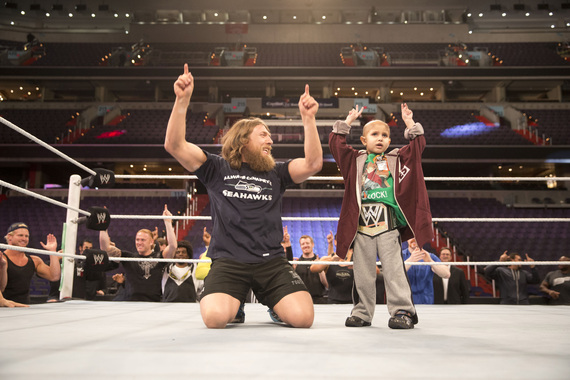NATIONAL CHILDHOOD CANCER AWARENESS MONTH, 2014
– – – – – – –
BY THE PRESIDENT OF THE UNITED STATES OF AMERICA
A PROCLAMATION
Each year, pediatric cancer interrupts the childhood and limits the potential of thousands of young Americans. It is estimated that almost 16,000 of our daughters and sons under the age of 20 will be diagnosed with cancer this year, and it remains the leading cause of disease-related death for children. This month — in honor of these young patients, their loved ones, and all those who support them — we rededicate ourselves to combating this devastation.
Critical research has led to real progress in the fight against pediatric cancer. Improvements in treatment and increased participation in clinical trials have helped decrease mortality rates for many types of childhood cancer by more than 50 percent over the past 30 years. These gains remind us of the importance of supporting scientific advances, and give us hope for a future free from cancer in all its forms. My Administration continues to invest in long-term research efforts that will build on this progress. As part of this commitment, earlier this year I signed the Gabriella Miller Kids First Research Act, which established the 10-Year Pediatric Research Initiative Fund. I continue to call on the Congress to invest the millions of dollars available in this Fund to support the urgent medical innovation that could lead to life-changing breakthroughs.
As we continue to pursue medical advances, the Affordable Care Act is improving families’ access to quality, affordable health coverage. Childhood cancer can occur suddenly, with no early symptoms, and regular medical checkups can help detect pediatric cancer at an early stage. The Affordable Care Act helps millions of families access this essential medical care, and new protections eliminate annual and lifetime dollar limits on coverage. Insurance companies are also prohibited from denying coverage due to a history of cancer, or any other pre-existing condition, and from denying participation in an approved clinical trial for any life-threatening disease.
During National Childhood Cancer Awareness Month, our Nation comes together to remember all those whose lives were cut short by pediatric cancer, to recognize the loved ones who know too well the pain it causes, and to support every child and every family battling cancer each day. We join with their loved ones and the researchers, health care providers, and advocates who support them as we work toward a tomorrow where all children are able to pursue their full measure of happiness without the burden of cancer.
NOW, THEREFORE, I, BARACK OBAMA, President of the United States of America, by virtue of the authority vested in me by the Constitution and the laws of the United States, do hereby proclaim September 2014 as National Childhood Cancer Awareness Month. I encourage all Americans to join me in reaffirming our commitment to fighting childhood cancer.
IN WITNESS WHEREOF, I have hereunto set my hand this twenty-ninth day of August, in the year of our Lord two thousand fourteen, and of the Independence of the United States of America the two hundred and thirty-ninth.
BARACK OBAMA





